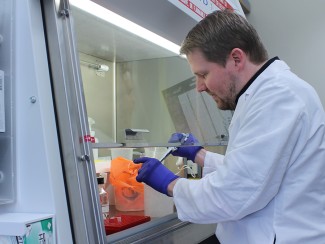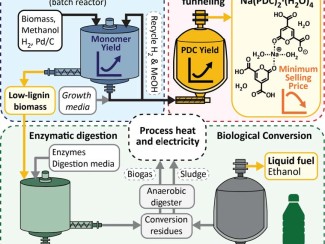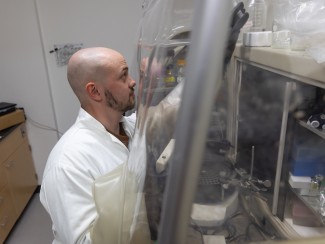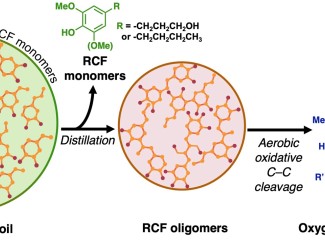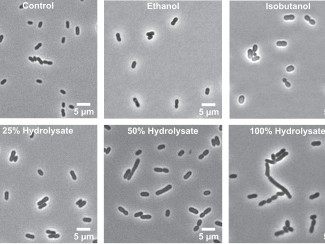The king of Sweden will present the award to Ralph and Boerjan in November at a ceremony in Stockholm.
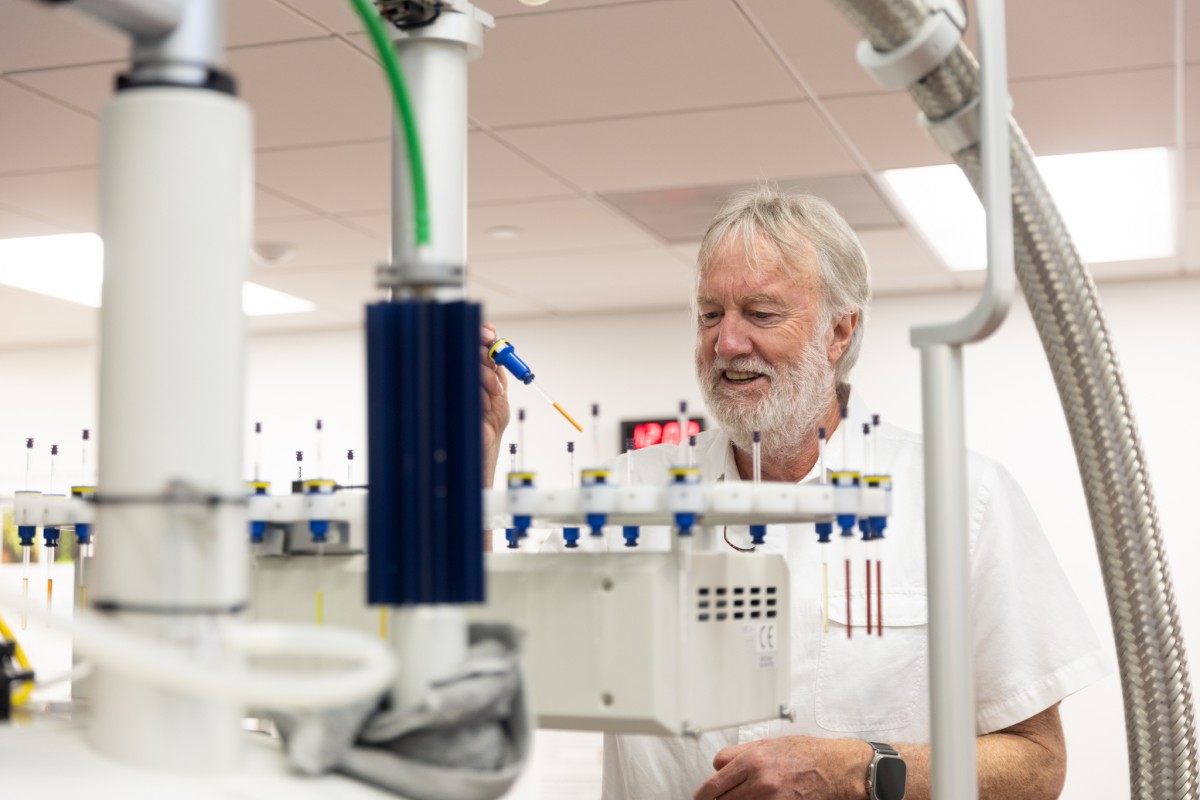
The world’s top prize in forestry research has been awarded to University of Wisconsin–Madison biochemistry professor John Ralph for work that has led to new uses for one of the world’s most abundant natural resources.
The Marcus Wallenberg Foundation on Wednesday awarded the 2024 Marcus Wallenberg Prize to Ralph and collaborator Wout Boerjan for their groundbreaking research on the molecular structure of lignin, one of the main components of plant cell walls.
Dubbed the “Nobel Prize for Forestry,” the prize honors scientific achievements that contribute to broader knowledge and technical developments in the forest industry, from growing trees to using forest-based products.
Lignin, which binds plant sugars together and provides strength and rigidity, is the most abundant source of natural aromatic compounds – used to make fuels, pesticides, paints, medicines, and other products – yet its complex and irregular structure make it difficult to break down into useful components.
According to the prize announcement, the scientists developed and innovatively applied advanced analytical techniques in ways that enhance understanding of lignin biosynthesis and structure in trees and provide a basis for new ways to deconstruct wood and use lignin.
“Professors Boerjan and Ralph have provided a conceptual framework for lignin biosynthesis, polymerization, and manipulation, and they have also demonstrated the potential for flexibility in lignin structure,” says Paul Dupree, a member of the prize selection committee and University of Cambridge biochemistry professor. “The conceptual and practical advances of these two researchers are paving the way for improved processing concepts of woody biomass and development of new applications for lignin and its constituents.”
Ralph, a co-investigator with the Wisconsin Energy Institute and Great Lakes Bioenergy Research Center, uses advanced nuclear magnetic resonance methods to understand lignin structure, subunits, and composition and has characterized a broad selection of plants to reveal new classes of building blocks as well as variation in the composition of lignin subunits.
Boerjan, a professor at Ghent University in Belgium, uses a systems biology approach that has led to the discovery of key enzymes involved in lignin biosynthesis.
Ralph said he is honored to receive the award but credits numerous mentees and collaborators from around the world who helped develop analytic methods and enhanced the knowledge of plant processes.
“All have been passionate about science and research aimed at improving biomass for a more sustainable and climate-friendly economy,” Ralph said.
The king of Sweden will present the award to Ralph and Boerjan in November at a ceremony in Stockholm.
Ralph is the third UW–Madison faculty member to receive the prize.
Joseph Buongiorno, emeritus professor of forest economics, was one of three recipients in 2023 honored for their development of groundbreaking economic models. The 1985 prize was awarded to T. Kent Kirk, a longtime researcher at the USDA Forest Products Laboratory in Madison and emeritus affiliate of the Bacteriology Department, for work on fungal degradation of wood.
Established in 1981, the award is named for Swedish industrialist Marcus Wallenberg, Jr., in honor of his service on the board of Stora Kopparbergs Bergslags AB, a 700-year-old Swedish mining company that is now part of Europe’s largest forestry company.

